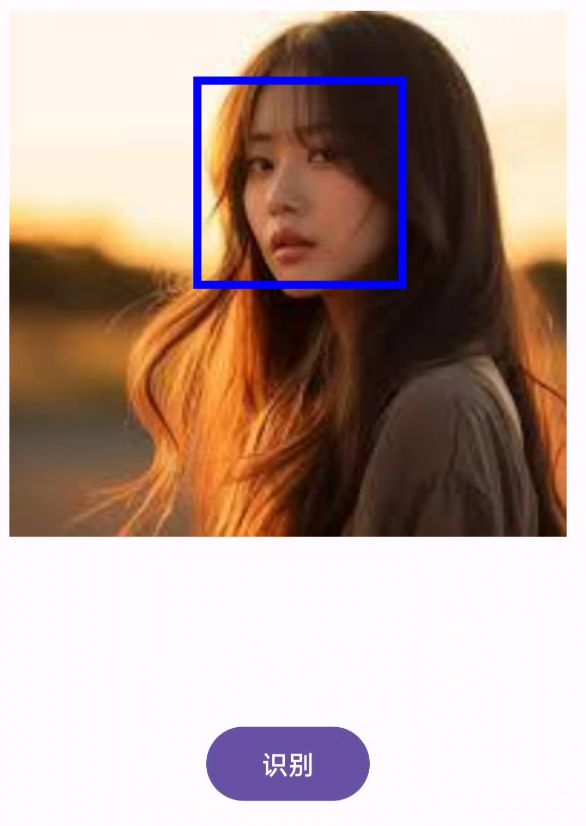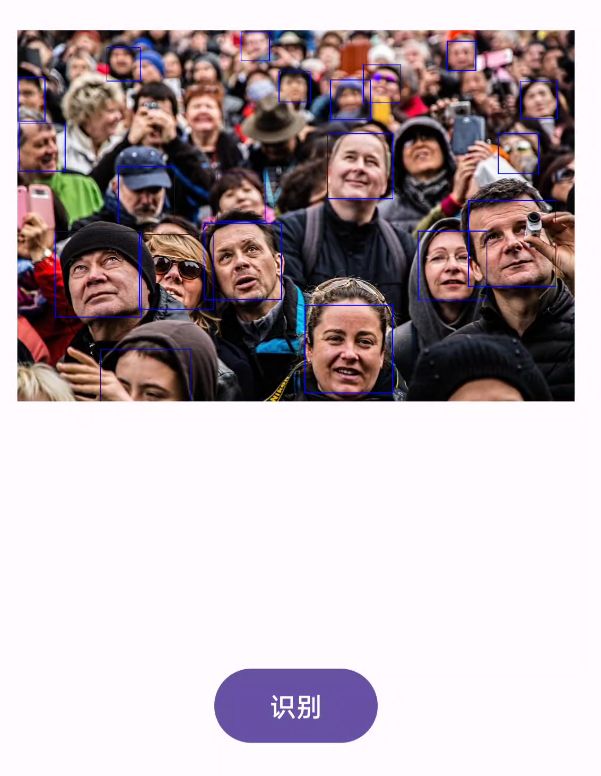- Android 11 DAC和MAC
Optimus●Prime
androidframeworksAndroidDACMAC权限控制
在Android11中,DAC(DiscretionaryAccessControl,自主访问控制)和MAC(MandatoryAccessControl,强制访问控制)是两种不同的访问控制机制,主要用于权限管理、安全性以及进程间访问控制。1.DAC(自主访问控制)DAC(DiscretionaryAccessControl,自主访问控制)是Android的传统权限管理机制,基于用户ID(UID)
- android:gravity=“center“无效解决方法
故事里故去
Androidandroidjavaui
TextView中设置android:gravity="center"不起作用的解决方法网上很多是android:includeFontPadding=“false”,但是没有解决这个问题,后来发现是行导致的,设置成android:lines="1"就可以了
- 人脸识别,dlib优化,Dlib/OpenCV交叉编译
yiyayiya557
linux嵌入式
参考文章:GitRepo镜像使用帮助https://mirrors.tuna.tsinghua.edu.cn/help/git-repo/交叉编译Dlib+OpenCV交叉编译移植到ARM64-v8平台(编译不通过,不可用)https://blog.csdn.net/kaychangeek/article/details/80365320Qt移植到ARM64-v8平台(NXPi.MX8M)笔记(未
- React Native
svygh123
问题解决过程编程jsreactnativereact.jsjavascript
ReactNative是一个用于构建原生移动应用的框架,它使用JavaScript和React(一个用于构建用户界面的JavaScript库)来开发iOS和Android平台的应用程序。ReactNative由Facebook开发并维护,并且是开源的。特点跨平台开发:ReactNative允许开发者使用相同的代码库为多个平台(如iOS和Android)编写应用,极大地提高了开发效率。热重载:开发者
- Android Studio 安装汉化包
奥特曼老师
androidstudioandroidide
Chinese(Simplified)LanguagePack/中文语言包确认自己的AndroidStudio的版本,需要跟下载的插件包对应上。插件包下载完成,无需解压打开AndroidStudio进行选择本地导入插件包
- Android 碎片视图生命周期与按钮事件处理
t0_54manong
android个人开发
在Android开发中,Fragment(碎片)是一个重要的组件,常用于创建多窗格UI或动态修改UI部分内容。本文将通过一个实例,探讨如何在Fragment中正确地设置按钮点击事件,并解释为什么在不同生命周期方法中设置监听器会导致不同的结果。问题描述假设你正在开发一个应用,包含一个菜单界面,其中有一个按钮用于从某个Fragment跳转到数据输入布局。按钮点击事件却无法响应,日志也没有任何输出。示例
- android悬浮窗服务卡死,Android 悬浮窗兼容问题谈
热爱护肤的刘博士
android悬浮窗服务卡死
悬浮窗应该算各大厂商最先开始对应用下手的地方。悬浮窗之所以讨人厌同样是因为被滥用,就像狗皮膏药一样贴在屏幕的上下左右,不管切换到哪个应用始终显示在最上层。悬浮窗的需求有点从电脑端延续的味道,以前桌面上经常跑出来个狮子,有个悬浮球,或者歌词。但那个时候占用桌面面积小,相比手机屏幕尺寸,现在的悬浮窗很容易覆盖住真正内容。那Android上面悬浮窗最初设计是想解决什么问题呢?悬浮窗也即一个Window。
- android实现全局悬浮窗,android 系统级的悬浮窗实现
钟程杰
android实现全局悬浮窗
android系统级悬浮球的实现流程当我们在使用的app的时候,如果需要实时观测到某个功能的实时进度并且不影响其他的操作的时候或者不影响使用其他应用的时候,系统级的悬浮球是个非常不错的选择。首先我们需要创建一条Service服务用来承载悬浮球。publicclassQueueUpFloatServiceextendsService{/***启动服务并传值**@paramactivity启动服务的a
- Android 视图切换的艺术
t0_54manong
android个人开发
引言在现代移动应用开发中,用户界面的流畅与视觉效果常常决定了应用的用户体验。特别是在横向滑动列表中,如何让用户能够直观地感知到当前选中的项,是一个值得探讨的问题。本文将详细介绍如何在Android应用中实现一个RecyclerView,根据其滑动位置动态改变项目的布局,使其在居中时变得更加突出。实现思路首先,我们需要明白,标准的RecyclerView并不直接提供检测项居中的方法。因此,我们需要采
- Flutter开发:使用SafeArea(安全区域)
三掌柜666
Flutter开发flutter安全ios
前言在Flutter开发中,对于各种手机机型的适配是一个非常重要的事情,尤其是Android系统的机型太多太杂,适配起来不是易事,而且对于iOS系统的iPhone手机的“刘海”适配也是关键的一个知识点。那么本篇博文就来分享一下关于SafeArea的使用,SafeArea也是各种稀奇古怪不规则的屏幕适配的最佳利器,方便查阅使用。原理SafeArea是通过MediaQuery来检测屏幕尺寸,让应用程序
- 【Android】setText调用导致的悬浮窗抖动问题
aaajj
Androidandroid
在Android13中,有这么一个bug,写一个可以拖到的悬浮窗,这个悬浮窗里有TextView,在拖到某个位置后,再调用TextView的setText方法,会发现出现了一个窗口动画,悬浮窗跳到了起始位置,从开始的位置又滑动到当前位置,看起来就是出现了一个跳动。试验例子packagecom.example.testfloatview;importandroid.app.Service;impor
- Android 线程池实战指南:高效管理多线程任务
tangweiguo03051987
android线程池
在Android开发中,线程池的使用非常重要,尤其是在需要处理大量异步任务时。线程池可以有效地管理线程资源,避免频繁创建和销毁线程带来的性能开销。以下是线程池的使用方法和最佳实践。1.线程池的基本使用(1)创建线程池Android提供了Executors工厂类来创建常见的线程池,也可以通过ThreadPoolExecutor自定义线程池。示例:使用Executors创建线程池//创建一个固定大小的
- Android Retrofit 框架注解定义与解析模块深度剖析(一)
&有梦想的咸鱼&
AndroidRetrofit原理androidretrofit
一、引言在现代Android和Java开发中,网络请求是不可或缺的一部分。Retrofit作为Square公司开源的一款强大的类型安全的HTTP客户端,凭借其简洁易用的API和高效的性能,在开发者社区中广受欢迎。Retrofit的核心特性之一便是通过注解来定义HTTP请求,这种方式使得代码更加清晰、易读且易于维护。本文将深入Retrofit框架的源码,对其注解定义与解析模块进行全面且细致的分析,揭
- React Native开发之调试
xiangzhihong8
ReactNativecommandnative调试
在做ReactNative开发时,少不了的需要对ReactNative程序进行调试。调试程序是每一位开发者的基本功,高效的调试不仅能提高开发效率,也能降低Bug率。DeveloperMenuAndroid模拟器:可以通过Command⌘+M快捷键来快速打开DeveloperMenu。也可以通过模拟器上的菜单键来打开。iOS模拟器:可以通过Command⌘+D快捷键来快速打开DeveloperMen
- Android 加解密算法工具类封装:AES、RSA、MD5 一站式解决方案
tangweiguo03051987
android算法AESDESMD5JAVA
在Android开发中,数据的安全性非常重要,尤其是敏感数据的存储和传输。为了实现数据加密和解密,我们可以封装一个通用的加解密工具类,支持常见的加密算法(如AES、RSA、DES等)。以下是一个基于AES对称加密算法的工具类封装示例,同时提供扩展性以支持其他算法。AES加解密工具类封装AES(AdvancedEncryptionStandard)是一种对称加密算法,加密和解密使用相同的密钥。以下是
- Android paging prepend前置加载
stevenzqzq
android
一代码示例lifecycleScope.launch{repeatOnLifecycle(Lifecycle.State.STARTED){articleAdapter.loadStateFlow.collect{binding.prependProgress.isVisible=it.source.prependisLoadingbinding.appendProgress.isVisible=
- android paging LoadStates状态说明
stevenzqzq
android
一publicdataclassLoadStates(/**[LoadState]correspondingto[LoadType.REFRESH]loads.*/publicvalrefresh:LoadState,/**[LoadState]correspondingto[LoadType.PREPEND]loads.*/publicvalprepend:LoadState,/**[LoadS
- android okhttp几种日志拦截级别区别
stevenzqzq
androidokhttp
一说明1代码enumclassLevel{/**Nologs.*/NONE,/***Logsrequestandresponselines.**Example:*```*-->POST/greetinghttp/1.1(3-bytebody)**POST/greetinghttp/1.1*Host:example.com*Content-Type:plain/text*Content-Length
- Android面试题之Kotlin Flow的collect和collectLatest有什么区别?
AntDreamer
kotlinandroidkotlin开发语言面试
本文首发于公众号“AntDream”,欢迎微信搜索“AntDream”或扫描文章底部二维码关注,和我一起每天进步一点点在Kotlin协程库中,collect和collectLatest是用于收集流数据的两种不同操作。理解它们的区别,将有助于确保在处理流数据时的效率和行为符合预期。1.基本定义collect:是一个挂起函数,用于启动流的收集过程。收集过程会逐个处理每个发射的值,并从上游流向下游执行相
- 千里马Framework手机车机互联投屏实Hal+perfetto+SurfaceFlinger合集
2501_91082100
eclipsegithub
千里马Android手机大厂入职培训Framework系统高级开发课资料地址https://pan.baidu.com/s/1GIsMJ9BGgjgbJCrsVNDi6A?pwd=2q49千里马Android高级架构师系统源码Framework实战系列千里马Android手机大厂Framework系统-跨进程通信高级实战课千里马Android手机大厂Framework系统-Input系统专题实战课
- android flow中collect和collectLatest的区别
stevenzqzq
android
嗯,我现在要分析用户的问题。用户问的是articleAdapter.loadStateFlow.collect{...}这段代码的含义,以及KotlinFlow中collect和collectLatest的区别。首先,我需要确认自己是否完全理解这两个问题,然后再逐步回答。首先,关于loadStateFlow.collect这段代码,用户可能是在使用Paging3库时遇到了相关代码,想了解它的作用。
- 【鸿蒙南向开发】OpenHarmony MDM应用开发流程
「已注销」
前端鸿蒙安卓harmonyos华为android鸿蒙前端
前言最近有越来越多的开发者关注MDM(MobileDeviceManagement)相关的开发内容,MDM在iOS和Android端上大量应用在企业内部的设备管控。因此,下文会为大家介绍如何开发一个MDM管理应用。开发环境系统版本:OpenHarmony5.0.0.27DevEcoStudio版本:OpenHarmony:DevEcoStudio4.1Release(build:4.1.0.400
- 亚矩阵云手机+SafetyNet:虚拟化设备的安全通行证破解应用兼容性难题
云机矩阵西奥
安全矩阵数据结构硬件架构网络安全科技服务器
SafetyNet是谷歌为Android设备设计的安全检测框架,主要用于验证设备完整性、防止恶意攻击,并确保应用运行在可信环境中。其核心功能包括:设备完整性检测:检查设备是否被Root、系统是否被篡改(如非官方ROM或解锁BootLoader)。应用认证:确保应用仅在安全环境中运行,例如通过CTSProfileMatch验证设备是否符合Google兼容性要求。恶意软件防护:动态检测并拦截潜在的恶意
- Android源码编译命令详解
龙之叶
Androidframework系统定制androidjavalinux开源ubuntu
一、引言先看下面几条指令,相信编译过Android源码的人都再熟悉不过的。sourcesetenv.shlunchmake-j8记得最初刚接触Android时,同事告诉我用上面的指令就可以编译Android源码,指令虽短但过几天就记不全或者忘记顺序,每次编译时还需要看看自己的云笔记,冰冷的指令总是难以让我记忆。后来我决定认真研究下这个指令的含义。知其然还需知其所以然,这样能更深层次的理解并记忆,才
- 第一行代码(第三版)kotlin-android-extensions报错处理
代码随想笔记
androidkotlin开发语言
classMainActivity:AppCompatActivity(){overridefunonCreate(savedInstanceState:Bundle?){super.onCreate(savedInstanceState)setContentView(R.layout.activity_main)valmBt_1:Button=findViewById(R.id.button1)
- Android GNSS 模块分析(一)整体介绍 - App
短距WCN协议开发分享
GPS手机平板穿戴知识分享androidandroidstudiojava
同学,别退出呀,我可是全网最牛逼的WIFI/BT/GPS/NFC分析博主,我写了上百篇文章,请点击下面了解本专栏,进入本博主主页看看再走呗,一定不会让你后悔的,记得一定要去看主页置顶文章哦。目录1、前言2、AndroidGNSS介绍3、AndroidGNSS各层级流程分析3.1API接口层3.2Framework服务层3.3JNI层级调用3.4Native层/Hal层4、GNSSNMEA数据概述正
- “面面俱到”!人脸活体检测让应用告别假面攻击
harmonyos
随着人脸识别技术在金融、医疗等多个领域的加速落地,网络安全、信息泄露等问题愈为突出,用户对应用稳定性和安全性的要求也更为严格。HarmonyOSSDK场景化视觉服务(VisionKit)提供人脸动作活体检测能力,增强对于非活体攻击的防御能力和活体通过率。在投资理财、在线支付等高风险金融服务场景中,通过检测用户的组合动作等来验证用户为真实活体操作,抵御攻击,提高安全性,降低业务风险,全方位保障用户体
- Android Studio学习随笔-模拟耗时操作(sleep)
weixin_30835923
移动开发
AndroidStudio学习随笔-模拟耗时操作(sleep)在这里我申明一点,因为我是挂着VPN去YOUTOBE看的尚学堂的高明鑫老师讲的Android基础学习视频,有些东西他没有讲,而我也没办法,只能等两个星期后学校请老师来的时候进行询问,当然我也会将一些问题发布在博客里,希望有一些粗腿可以让我抱一下在此次随笔中,我将讲一下用sleep进行的耗时操作,由于高老师在视频中也是一掠而过,我也只能讲
- sdkwrapper.java_Android Studio打包cocos creator项目出现java.lang.UnsatisfiedLinkError:SDKWrapper.nativeLoa...
绫小莉
sdkwrapper.java
最近用cocoscreator开发一个游戏,用AndroidStudio打包Apk时却出现了以下错误:Process:org.cocos2dx.javascript,PID:24123java.lang.UnsatisfiedLinkError:Nativemethodnotfound:org.cocos2dx.javascript.SDKWrapper.nativeLoadAllPlugins:
- Cannot resolve symbol ‘view‘ Androidstudio报错解决办法
LuXi_foryou
androidjavaandroidstudio
报错原因出现Cannotresolvesymbol'view'错误是因为代码中的view变量未正确定义或不在当前作用域内。以下是常见场景和解决方法:场景1:在点击事件监听器中获取view如果代码在OnClickListener的onClick方法中,view是方法的参数,可以直接使用:button.setOnClickListener(newView.OnClickListener(){@Over
- java的(PO,VO,TO,BO,DAO,POJO)
Cb123456
VOTOBOPOJODAO
转:
http://www.cnblogs.com/yxnchinahlj/archive/2012/02/24/2366110.html
-------------------------------------------------------------------
O/R Mapping 是 Object Relational Mapping(对象关系映
- spring ioc原理(看完后大家可以自己写一个spring)
aijuans
spring
最近,买了本Spring入门书:spring In Action 。大致浏览了下感觉还不错。就是入门了点。Manning的书还是不错的,我虽然不像哪些只看Manning书的人那样专注于Manning,但怀着崇敬 的心情和激情通览了一遍。又一次接受了IOC 、DI、AOP等Spring核心概念。 先就IOC和DI谈一点我的看法。IO
- MyEclipse 2014中Customize Persperctive设置无效的解决方法
Kai_Ge
MyEclipse2014
高高兴兴下载个MyEclipse2014,发现工具条上多了个手机开发的按钮,心生不爽就想弄掉他!
结果发现Customize Persperctive失效!!
有说更新下就好了,可是国内Myeclipse访问不了,何谈更新...
so~这里提供了更新后的一下jar包,给大家使用!
1、将9个jar复制到myeclipse安装目录\plugins中
2、删除和这9个jar同包名但是版本号较
- SpringMvc上传
120153216
springMVC
@RequestMapping(value = WebUrlConstant.UPLOADFILE)
@ResponseBody
public Map<String, Object> uploadFile(HttpServletRequest request,HttpServletResponse httpresponse) {
try {
//
- Javascript----HTML DOM 事件
何必如此
JavaScripthtmlWeb
HTML DOM 事件允许Javascript在HTML文档元素中注册不同事件处理程序。
事件通常与函数结合使用,函数不会在事件发生前被执行!
注:DOM: 指明使用的 DOM 属性级别。
1.鼠标事件
属性
- 动态绑定和删除onclick事件
357029540
JavaScriptjquery
因为对JQUERY和JS的动态绑定事件的不熟悉,今天花了好久的时间才把动态绑定和删除onclick事件搞定!现在分享下我的过程。
在我的查询页面,我将我的onclick事件绑定到了tr标签上同时传入当前行(this值)参数,这样可以在点击行上的任意地方时可以选中checkbox,但是在我的某一列上也有一个onclick事件是用于下载附件的,当
- HttpClient|HttpClient请求详解
7454103
apache应用服务器网络协议网络应用Security
HttpClient 是 Apache Jakarta Common 下的子项目,可以用来提供高效的、最新的、功能丰富的支持 HTTP 协议的客户端编程工具包,并且它支持 HTTP 协议最新的版本和建议。本文首先介绍 HTTPClient,然后根据作者实际工作经验给出了一些常见问题的解决方法。HTTP 协议可能是现在 Internet 上使用得最多、最重要的协议了,越来越多的 Java 应用程序需
- 递归 逐层统计树形结构数据
darkranger
数据结构
将集合递归获取树形结构:
/**
*
* 递归获取数据
* @param alist:所有分类
* @param subjname:对应统计的项目名称
* @param pk:对应项目主键
* @param reportList: 最后统计的结果集
* @param count:项目级别
*/
public void getReportVO(Arr
- 访问WEB-INF下使用frameset标签页面出错的原因
aijuans
struts2
<frameset rows="61,*,24" cols="*" framespacing="0" frameborder="no" border="0">
- MAVEN常用命令
avords
Maven库:
http://repo2.maven.org/maven2/
Maven依赖查询:
http://mvnrepository.com/
Maven常用命令: 1. 创建Maven的普通java项目: mvn archetype:create -DgroupId=packageName
- PHP如果自带一个小型的web服务器就好了
houxinyou
apache应用服务器WebPHP脚本
最近单位用PHP做网站,感觉PHP挺好的,不过有一些地方不太习惯,比如,环境搭建。PHP本身就是一个网站后台脚本,但用PHP做程序时还要下载apache,配置起来也不太很方便,虽然有好多配置好的apache+php+mysq的环境,但用起来总是心里不太舒服,因为我要的只是一个开发环境,如果是真实的运行环境,下个apahe也无所谓,但只是一个开发环境,总有一种杀鸡用牛刀的感觉。如果php自己的程序中
- NoSQL数据库之Redis数据库管理(list类型)
bijian1013
redis数据库NoSQL
3.list类型及操作
List是一个链表结构,主要功能是push、pop、获取一个范围的所有值等等,操作key理解为链表的名字。Redis的list类型其实就是一个每个子元素都是string类型的双向链表。我们可以通过push、pop操作从链表的头部或者尾部添加删除元素,这样list既可以作为栈,又可以作为队列。
&nbs
- 谁在用Hadoop?
bingyingao
hadoop数据挖掘公司应用场景
Hadoop技术的应用已经十分广泛了,而我是最近才开始对它有所了解,它在大数据领域的出色表现也让我产生了兴趣。浏览了他的官网,其中有一个页面专门介绍目前世界上有哪些公司在用Hadoop,这些公司涵盖各行各业,不乏一些大公司如alibaba,ebay,amazon,google,facebook,adobe等,主要用于日志分析、数据挖掘、机器学习、构建索引、业务报表等场景,这更加激发了学习它的热情。
- 【Spark七十六】Spark计算结果存到MySQL
bit1129
mysql
package spark.examples.db
import java.sql.{PreparedStatement, Connection, DriverManager}
import com.mysql.jdbc.Driver
import org.apache.spark.{SparkContext, SparkConf}
object SparkMySQLInteg
- Scala: JVM上的函数编程
bookjovi
scalaerlanghaskell
说Scala是JVM上的函数编程一点也不为过,Scala把面向对象和函数型编程这两种主流编程范式结合了起来,对于熟悉各种编程范式的人而言Scala并没有带来太多革新的编程思想,scala主要的有点在于Java庞大的package优势,这样也就弥补了JVM平台上函数型编程的缺失,MS家.net上已经有了F#,JVM怎么能不跟上呢?
对本人而言
- jar打成exe
bro_feng
java jar exe
今天要把jar包打成exe,jsmooth和exe4j都用了。
遇见几个问题。记录一下。
两个软件都很好使,网上都有图片教程,都挺不错。
首先肯定是要用自己的jre的,不然不能通用,其次别忘了把需要的lib放到classPath中。
困扰我很久的一个问题是,我自己打包成功后,在一个同事的没有装jdk的电脑上运行,就是不行,报错jvm.dll为无效的windows映像,如截图
最后发现
- 读《研磨设计模式》-代码笔记-策略模式-Strategy
bylijinnan
java设计模式
声明: 本文只为方便我个人查阅和理解,详细的分析以及源代码请移步 原作者的博客http://chjavach.iteye.com/
/*
策略模式定义了一系列的算法,并将每一个算法封装起来,而且使它们还可以相互替换。策略模式让算法独立于使用它的客户而独立变化
简单理解:
1、将不同的策略提炼出一个共同接口。这是容易的,因为不同的策略,只是算法不同,需要传递的参数
- cmd命令值cvfM命令
chenyu19891124
cmd
cmd命令还真是强大啊。今天发现jar -cvfM aa.rar @aaalist 就这行命令可以根据aaalist取出相应的文件
例如:
在d:\workspace\prpall\test.java 有这样一个文件,现在想要将这个文件打成一个包。运行如下命令即可比如在d:\wor
- OpenJWeb(1.8) Java Web应用快速开发平台
comsci
java框架Web项目管理企业应用
OpenJWeb(1.8) Java Web应用快速开发平台的作者是我们技术联盟的成员,他最近推出了新版本的快速应用开发平台 OpenJWeb(1.8),我帮他做做宣传
OpenJWeb快速开发平台以快速开发为核心,整合先进的java 开源框架,本着自主开发+应用集成相结合的原则,旨在为政府、企事业单位、软件公司等平台用户提供一个架构透
- Python 报错:IndentationError: unexpected indent
daizj
pythontab空格缩进
IndentationError: unexpected indent 是缩进的问题,也有可能是tab和空格混用啦
Python开发者有意让违反了缩进规则的程序不能通过编译,以此来强制程序员养成良好的编程习惯。并且在Python语言里,缩进而非花括号或者某种关键字,被用于表示语句块的开始和退出。增加缩进表示语句块的开
- HttpClient 超时设置
dongwei_6688
httpclient
HttpClient中的超时设置包含两个部分:
1. 建立连接超时,是指在httpclient客户端和服务器端建立连接过程中允许的最大等待时间
2. 读取数据超时,是指在建立连接后,等待读取服务器端的响应数据时允许的最大等待时间
在HttpClient 4.x中如下设置:
HttpClient httpclient = new DefaultHttpC
- 小鱼与波浪
dcj3sjt126com
一条小鱼游出水面看蓝天,偶然间遇到了波浪。 小鱼便与波浪在海面上游戏,随着波浪上下起伏、汹涌前进。 小鱼在波浪里兴奋得大叫:“你每天都过着这么刺激的生活吗?简直太棒了。” 波浪说:“岂只每天过这样的生活,几乎每一刻都这么刺激!还有更刺激的,要有潮汐变化,或者狂风暴雨,那才是兴奋得心脏都会跳出来。” 小鱼说:“真希望我也能变成一个波浪,每天随着风雨、潮汐流动,不知道有多么好!” 很快,小鱼
- Error Code: 1175 You are using safe update mode and you tried to update a table
dcj3sjt126com
mysql
快速高效用:SET SQL_SAFE_UPDATES = 0;下面的就不要看了!
今日用MySQL Workbench进行数据库的管理更新时,执行一个更新的语句碰到以下错误提示:
Error Code: 1175
You are using safe update mode and you tried to update a table without a WHERE that
- 枚举类型详细介绍及方法定义
gaomysion
enumjavaee
转发
http://developer.51cto.com/art/201107/275031.htm
枚举其实就是一种类型,跟int, char 这种差不多,就是定义变量时限制输入的,你只能够赋enum里面规定的值。建议大家可以看看,这两篇文章,《java枚举类型入门》和《C++的中的结构体和枚举》,供大家参考。
枚举类型是JDK5.0的新特征。Sun引进了一个全新的关键字enum
- Merge Sorted Array
hcx2013
array
Given two sorted integer arrays nums1 and nums2, merge nums2 into nums1 as one sorted array.
Note:You may assume that nums1 has enough space (size that is
- Expression Language 3.0新特性
jinnianshilongnian
el 3.0
Expression Language 3.0表达式语言规范最终版从2013-4-29发布到现在已经非常久的时间了;目前如Tomcat 8、Jetty 9、GlasshFish 4已经支持EL 3.0。新特性包括:如字符串拼接操作符、赋值、分号操作符、对象方法调用、Lambda表达式、静态字段/方法调用、构造器调用、Java8集合操作。目前Glassfish 4/Jetty实现最好,对大多数新特性
- 超越算法来看待个性化推荐
liyonghui160com
超越算法来看待个性化推荐
一提到个性化推荐,大家一般会想到协同过滤、文本相似等推荐算法,或是更高阶的模型推荐算法,百度的张栋说过,推荐40%取决于UI、30%取决于数据、20%取决于背景知识,虽然本人不是很认同这种比例,但推荐系统中,推荐算法起的作用起的作用是非常有限的。
就像任何
- 写给Javascript初学者的小小建议
pda158
JavaScript
一般初学JavaScript的时候最头痛的就是浏览器兼容问题。在Firefox下面好好的代码放到IE就不能显示了,又或者是在IE能正常显示的代码在firefox又报错了。 如果你正初学JavaScript并有着一样的处境的话建议你:初学JavaScript的时候无视DOM和BOM的兼容性,将更多的时间花在 了解语言本身(ECMAScript)。只在特定浏览器编写代码(Chrome/Fi
- Java 枚举
ShihLei
javaenum枚举
注:文章内容大量借鉴使用网上的资料,可惜没有记录参考地址,只能再传对作者说声抱歉并表示感谢!
一 基础 1)语法
枚举类型只能有私有构造器(这样做可以保证客户代码没有办法新建一个enum的实例)
枚举实例必须最先定义
2)特性
&nb
- Java SE 6 HotSpot虚拟机的垃圾回收机制
uuhorse
javaHotSpotGC垃圾回收VM
官方资料,关于Java SE 6 HotSpot虚拟机的garbage Collection,非常全,英文。
http://www.oracle.com/technetwork/java/javase/gc-tuning-6-140523.html
Java SE 6 HotSpot[tm] Virtual Machine Garbage Collection Tuning
&


